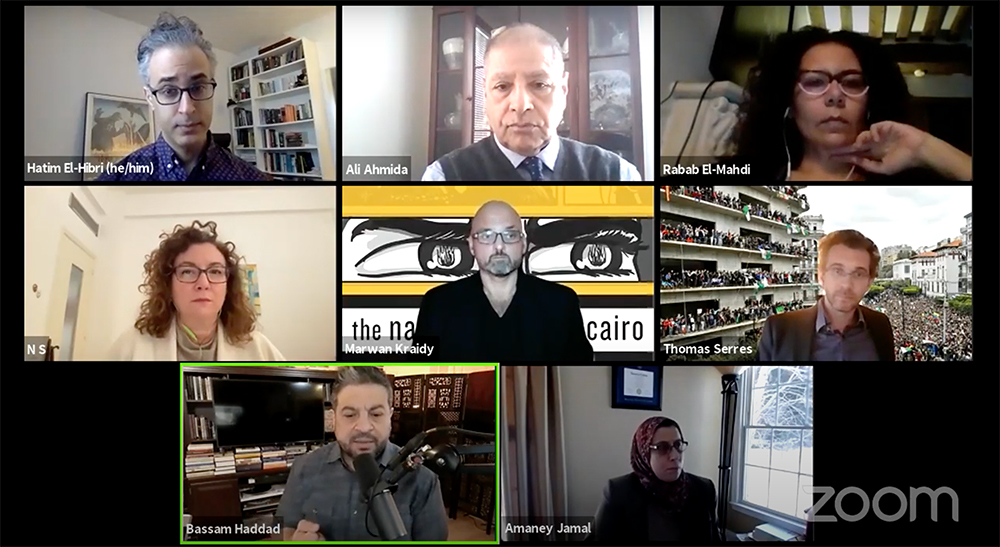At a recent webinar – Teaching the Arab Uprising – Northwestern Qatar Dean Marwan M. Kraidy discussed his experience teaching creative insurgency.
The webinar was part of a year-long series of events organized by The Ten Years On Project: Mass Protests and Uprisings in the Arab World to understand the last decade of political upheaval historically. The series is organized by the Middle East and Islamic Studies Program at George Mason University, the Arab Barometer at Princeton University, and the Arab Studies Institute.
In his presentation, Kraidy reflected on his experience teaching students how to analyze the unfolding events of the Arab Spring while also understanding other forms of activism in similar uprisings throughout the world. “Academic work about the Arab uprisings have proven to be relevant far beyond the Arab world,” Kraidy said, noting the importance of “deprovincializing the literature by creating a dialogue between studies focused in one area and parallel events occurring in other areas.”
According to Kraidy, central to teaching the events of the Arab uprisings is the examination of the meanings of the slogans and “fraught monikers” that make up the language of mass protests. He pointed out that the power of terminology is evident when examining why some slogans end up dominating over others and end up shaping the narrative in different public discourses.
He also highlighted the importance of tracing the historical roots of the 2011 uprisings and dispelling the understanding that the Arab Uprisings started a decade ago. Instead, he said, students need to examine past revolutions, such as the French and Iranian revolutions, to better understand the role of gender, body politics, and revolutionary action in the contemporary Arab world context.
“Unfortunately, students’ understandings of the origins of the Arab uprisings have been falsely shaped by grandiose claims suggesting that the Arab Spring is unprecedented; however, when deploying intellectual theories about body politic and biopolitics from Medieval Europe to contemporary Middle East-focused analysis, we then understand that the roots of the Arab Uprisings go far before 2011,” he said.
The Arab Uprisings Project is a year-long series of events that reflect on the outcomes of the historic mass protests and provide a platform for educators, researchers, students, and journalists to collaboratively interrogate the multiple questions the Arab uprisings continue to pose. Other speakers who presented at this panel were Professor Nadya Sbaiti of the American University of Beirut, MENA politics researcher Thomas Serres, and Rabab El-Mahdi, a political science professor at American University in Cairo.
An authority on Arab media, culture, and politics, Kraidy has published three books and authored 130 essays and chapters on the Middle East’s geopolitics and media culture. In his award-winning book, ‘The Naked Blogger of Cairo: Creative Insurgency in the Arab World,’ he examined how protestors used their bodies to express rebellion and power during the Arab uprisings.

